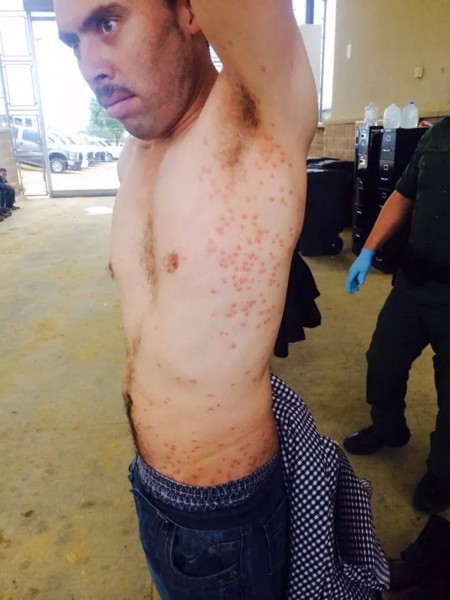A border patrol agent was diagnosed with scabies after processing undocumented immigrants in Otay Mesa, California, the agent’s union representative said. Ronald Zermeno, health and safety director for the National Border Control Council union, said the agent told him that he observed several people with open sores while screening them in preparation to be released to U.S. Immigration and Customs Enforcement. Scabies is caused by a mite that burrows into skin and lays eggs, causing an intense itching and rash, according to the Centers for Disease Control and Prevention.
And it is being reported that border patrol agents are receiving the following instructions from their union…
1. All Agents should bring a second set of clothes (Including socks and shoes) to the station. Change clothes prior to going home so that you can minimize the chances of infecting any of your family or friends.
a. We will be looking into getting coveralls or some other form of outer clothing for agents.
b. We will also be looking for a way to launder your clothing so that you don’t have to take it home.
c. Place clothing in a plastic trash bag and take directly from the bag to the washing machine.
d. If possible we recommend showering at the station after each shift before going home.
2. All agents should get tested for TB in order to ensure you have a baseline.
a. We will be working with the agency to get occupational health out to provide testing.
b. In the meantime go to your personal health care provider and get TB test done.
3. Agents should refrain from touching their nose, mouth or eyes when processing.
4. All bedding and clothing should be handled with protective equipment (gloves) and placed in specifically designed containers (i.e. plastic bag) and laundered ASAP.
5. Gloves should be worn at all times and changed frequently. Hand sanitizer should be used between changing gloves.
6. Educational material will be distributed in order to assist agents with the identification of communicable diseases.
7. Cells should be disinfected regularly.
8. All detainees who are suspected or report having communicable disease will be documented and reported to a supervisor as soon as possible.
9. All detainees should be given vaccinations before being released into the communities.
10. If there are any supplies you believe you need and the service has not provided contact the local union health and safety officer and we will look into purchasing those items directly.
11. If you have any concerns please contact your local health and safety officer and we will address the issue and get back to you ASAP.
